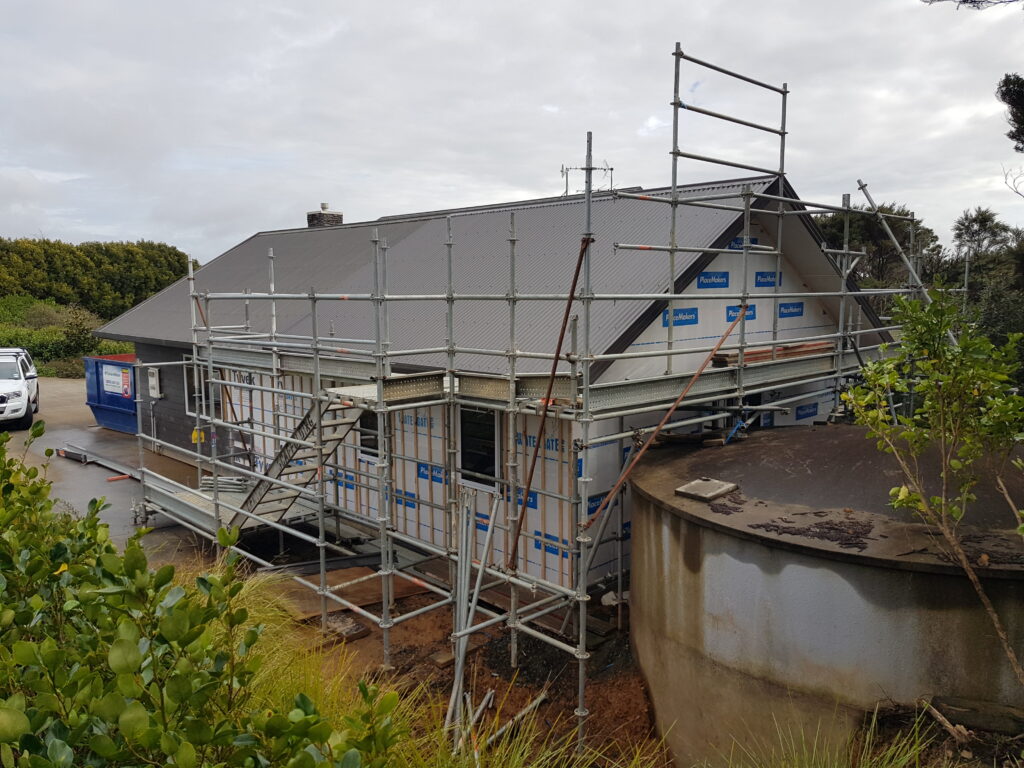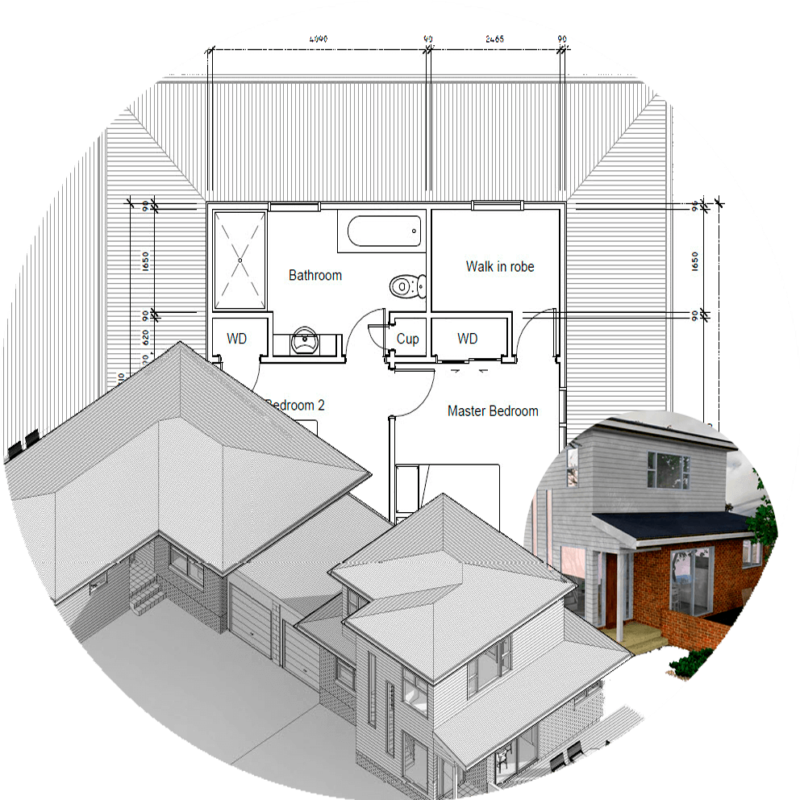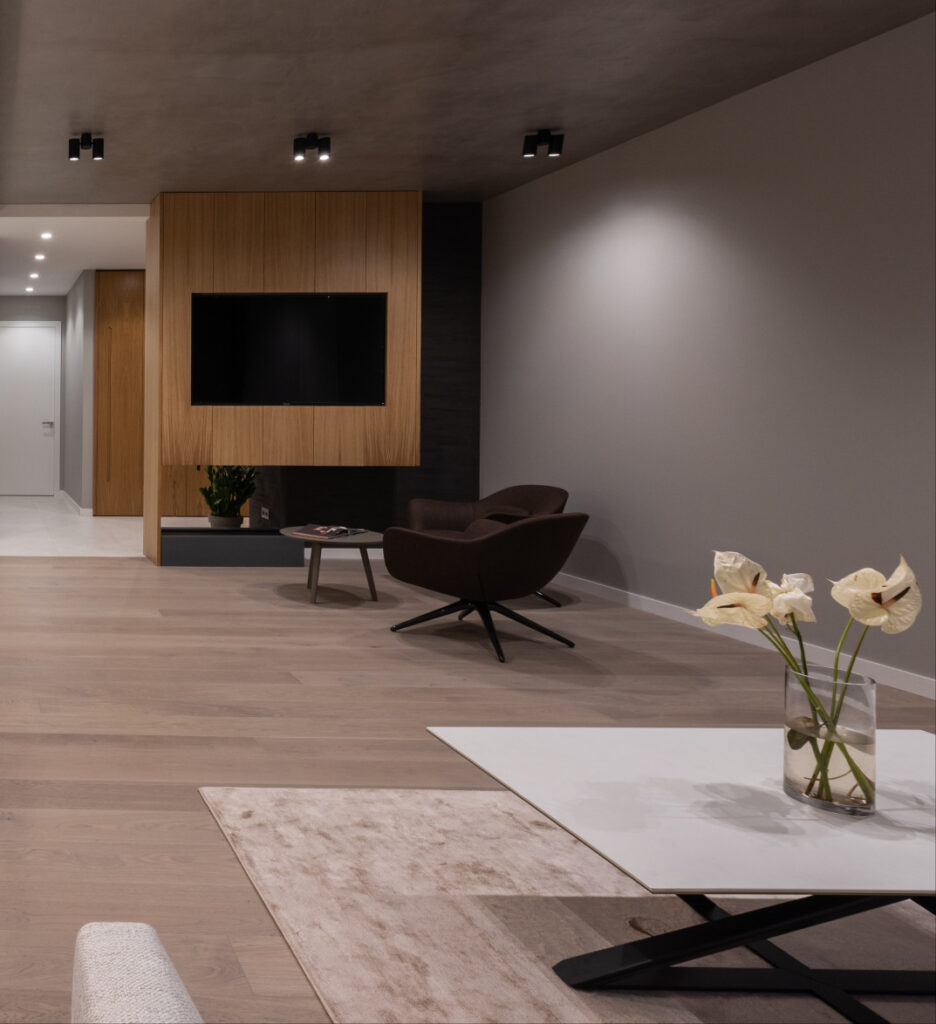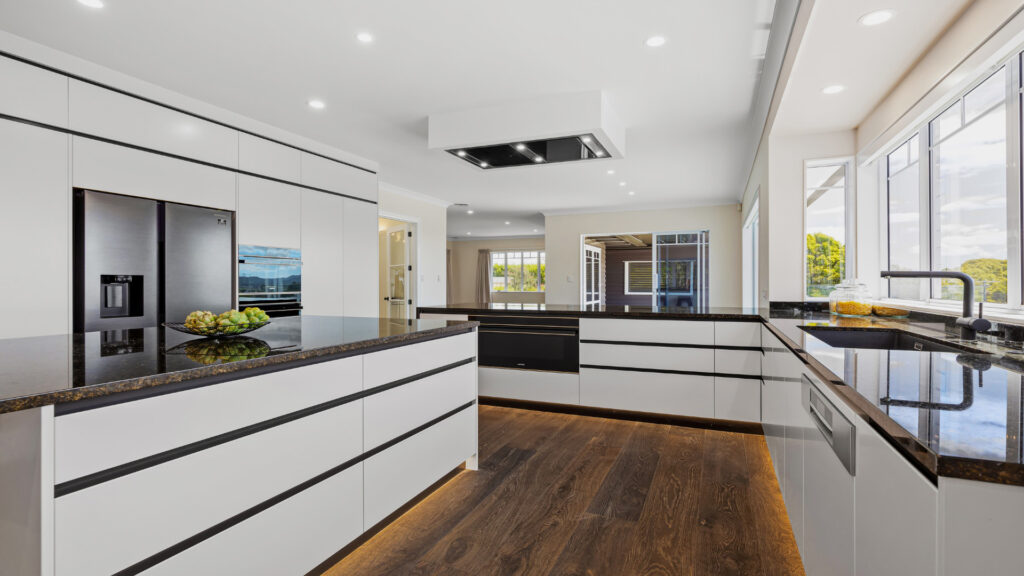HOME EXTENSION RENOVATION COSTS 2022 – AUCKLAND (UPDATED)
Extending a house in NZ is a popular option for homeowners needing more space but not wanting the daunting task of purchasing an older property to fully renovate.
– Jan Antoni Glinkowski • Director • Style Plus
“What are the home extension renovation costs” is a typical question asked during an initial consultation with Style Plus Renovations.
Adding a room or extending your ground-level living area are cost-effective ways of creating more space. However, what are the home extension renovation costs when embarking on this type of house extension renovation in NZ?
The team at Style Plus Renovations North Shore Auckland take a look at some of the costs behind building home extensions in NZ:
Table of Contents
WHY RENOVATE?
Renovating your home in the way you choose is one of the great benefits of owning your own property.
However, what are the most common reasons to renovate?
A few common reasons are:
- You would like to move, however, the property prices mean the best option is making your current home work for your family.
- You would like to stay in the area where your preferred schools are.
- Where you can grow into a property such as adding extra space such as a single-level extension to accommodate an expanding or growing family, or simply adding a sense of space.
- Adding more living space to increase your return on investment.
Renovating your home can improve your lifestyle, add value to your property and above all add an enormous sense of satisfaction. However, before you start on the house extension renovation path there are a number of costs to consider.
TYPES OF EXTENSIONS
The first stage of a home extension renovation project is to explore your options. Different types of home extension projects will have different renovation costs. Also, the costs in Auckland will differ from costs in say Christchurch.
The following are four typical options;
- Single-storey – ground-level house extension.
- Going Up – second-storey house extension.
- Basement conversion.
- Garage conversion.

1. IS A HOUSE EXTENSION WORTH IT?
Single storey house extensions are built onto a part of the house and one or more sides of the extension are attached to the house. A well-designed and constructed side extension, if done well, will look and feel like a natural part of your home.
The addition of single storey house extension can add value to your home in many ways. The following are a few ideas you can turn your single storey extension in to:
- New living area room, that has the potential to create an indoor-outdoor flow.
- New bedroom(s).
- New master bedroom and ensuite.
- Kids playroom.
- Extending to increase the size of the living space and installing a new kitchen. Typically, this option creates an open plan area that can be used as a combined kitchen, dining and living area. Combining functionallity is a cost effective house extension project.
- Home office.
During your planning stage, the following are a couple of items that you will need to consider;
- The size of the proposed house extension.
- How the roof will work with the existing building roof line and its impact on the neighbours.
- Other potential issues that may arise are the positions of current services such as stormwater, power and water mains lines.
2. GOING UP – SECOND STOREY HOUSE EXTENSION
A second storey house extension can be built to add additional upstairs bedroom(s) or bathroom or even the creation of a living area with living, ensuite and bedroom.
Building a second storey house extension it’s more complex and the costs are higher than the single story house extension.
The following are a few key areas to consider before you embark on your second storey house extension project;
- You may need to consider privacy issues and ensure you are not encroaching on your neighbours. This would be considered during the design phase with your architect.
- Going up usually means either taking the entire roof off or part of the roof off. This is dependent on the design and placement of the second storey house extension.
- Building a second storey house extension means adding extra weight onto the existing house. You need to be sure your house can handle this additional weight. A chartered engineer would help in this respect.
- You will also need to consider how your current floor plan will change. For example, space is required for a staircase, to access the new upper level.
- Additional engineering costs both materials and engineers consultant fees. Need to be considered when planning your project budget.

3. BASEMENT CONVERSION
Although a house basement conversion is not an extension in name, it is an extension of your living space.
A basement conversion is a good option if you do not have space around your home to build on.
The following are a few key areas to consider before you embark on your project;
- The civil works involved to create the basement area can be costly, depending on the logistics, ground conditions and access to the area.
- A geotechnical (Geotech) survey is a likely cost that would need to be considered.
- An engineer’s report would need to be undertaken.
Villas are a good example of the type of house which is suitable for this kind of house extension. The Villa is lifted and a lower floor is created from the basement area.
4. GARAGE CONVERSION
When a garage is constructed, it does not have to meet the same requirements as a home under the Building Code and are therefore not suitable for habitable purposes i.e. non-habitable.
The conversion of a non-habitable space to a habitable space is considered an ‘alteration to an existing building’ rather than a ‘change of use’. The council requires that converted non-habitable spaces comply with the Building Code wherever possible to ensure that the homeowners live in a safe and healthy building.
A Garage Conversion is a good home renovation extension option if you want to add more living space to your home without extending the footprint of the house. However, there are a few council requirements for the conversion, for example,
- Insulation, building wraps and internal linings are installed. This may require the removal removing of the external cladding so that insulation and building wrap can be installed.
- Damp proof membranes are in place. This relates to the concrete slab. Typically membranes are placed between the ground and concrete to prevent moisture migrating into the building. Where a membrane has not been placed a topping or surface coating maybe required to protect the internal environment.
- Providing adequate light and ventilation.
- If a bathroom is to be built there must be adequate provision for the disposal of internal moisture i.e. steam from showers.
- Floor, wall and ceiling surfaces are to be sealed, painted or covered.
- Converting a non-habitable to habitable space usually needs a building consent under the Building Act.

WHAT IS THE COST TO BUILD A SINGLE STOREY HOUSE EXTENSION?
In Auckland and considering the price increases of materials, a more realistic estimate for a modest single room house extension costs could be between $150K to $250K+ depending on the specification. These costs are indicative because every renovation and site has many different variations, and the size of the extension has cost implications.
Size does matter. Smaller renovations typically work out more expensive per m2 than larger renovations as many of the build overheads are constants.
Using the m2 rates, extension vary between $3,500 to $5,500+ per m2. This cost rate does not include adding a bathroom, kitchen, architectural & engineering fees, council fees, and GST. However, it is difficult to give an accurate build cost per m2 and is not a good guideline to base your home extension project on.
Additional details for the site, such as a geotechnical (geotech) report and land survey are typically required to determine a more accurate build cost.
Additionally, due to the shortage of skilled, licensed builders and the ever-increasing costs of materials, build costs are slowly rising.
So, for a ground floor, small single level extension, the indicative build cost at the lowest end of these estimates ($3,500/m2) for a 36m2 extension would be roughly $126,000 +GST. This is your starting point and dose not include a bathroom, kitchen, architect and engineers fee, contingency fund and council fees.
However, you will also need to add the following costs:
- Professional fees. For example,
- Architect fees for preliminary and building consent drawings. For a simple home extension (up to 100m2) project the fee would be in the region of $8,500. This fee is typically dictated by the complexity of the project.
- Geotech fee; budget for $1000.
- Survey fee; for a topographical survey budget for $3,500.
- Plan a contingency fund. Renovations have a habit of revealing hidden surprises. Allow at least 15% of your project value, for overruns, unforeseen costs or changes to the plan.
- Council building consent fees. This fee is calculated on the project value.
- Add GST to your final build cost.
Until the plans are completed by the architect, you will not know the exact cost of the home extension. When plans are completed, a more accurate quote can be created and presented to the homeowner.
TIP: When you receive a build cost quote, check if the following is included:
- Building warranty cost. This may be part of the preliminary and general (P&G) costs.
- Council costs – see Auckland Council Consent fees.
ARE THERE ANY COMPLEX SITE CONSTRAINTS?
As part of your home extension costs / project budget planning, you will need to include additional costs if any of the following apply:
- Your soil type and ground conditions where a house extension is planned may present more costly construction methods. This will usually mean that a geotechnical survey is required to obtain information on the physical properties of soil and rock around a site. The survey will also help to design earthworks and foundations for proposed structures.
- Limited access to the site. Will it be easy for the builder to bring in materials, machinery and waste skips easily?
- Is your house situated on a steep gradient that will make the renovation more challenging?
- For the existing structure, are you removing any structural walls? are you building a second storey extension? If so, there will likely be additional costs for structural engineering and works.
- Are you moving any plumbing or drainage? Rearranging the layout of the sink, shower or toilet (or all three) will most likely double, and in some cases triple, your plumbing/drainage costs.
WHAT ARE THE KITCHEN AND BATHROOM COSTS?
Bathroom renovation costs vary depending on the space and choices in fixtures and finishes. Also, as bathrooms are particularly prone to rot or warping from leaking water additional remedial costs may need to be considered.
If you are adding a home extension and the scope of works include a bathroom, there will be no costs for demolition, for example, disconnection your current wares and removing all existing wall linings. However, there will be other costs such as extending key services into the new bathroom (water, electrical, drainage and sewage). Because of these expenses, the cost of a new bathroom may be higher.
The following costs are indicative only to give a general guideline.
- Low bathroom renovation cost start at approximately $15,000 – $20,000
- Mid-bathroom renovation cost range from $18,500 – $30,500
- High bathroom renovation cost range from $25,000 – $50,000+ for a full tile bathroom.
KITCHEN RENOVATION COSTS
Similar to the new bathroom option, the cost will not include removing the old kitchen but will include new plumbing and electricity.
To determine the kitchen costs you will need to determine your kitchen design and your appliances.
Other costs (estimates/quotes) that you will need to determine are from the kitchen suppliers and installers, electrician, plumber and builder. Typically, a new kitchen install will be higher than a kitchen renovation.
The following kitchen renovation costs are indicative only to give a general guideline.
- Low kitchen renovation cost start at approximately $10,000 – $22,000
- Mid kitchen renovation cost range from $22,000 – $50,000
- High kitchen renovation cost range from $50,000 – $80,000+
Tip: Modular (kit set) kitchen suppliers work with set sized cabinets. Their approach is to do a “best fit” from within their standard range and then use filler panels to fill the gaps. Custom made kitchens offer better use of space and are designed and fitted to your specification.
Tip: Check your build contract, as the design of a kitchen is unique to the homeowner the actual cost may not be included. However, a provisional sum may be included in your build contract as a ballpark allowance.

FIXTURES, FITTINGS AND FINISHES
Fixtures, fittings and finishes are items that will form part of your house extension renovation that are typically not itemised in your renovation building costs. These items are likely to add up to a significant portion of your renovation budget. However, they may be listed in your contract under as an estimate under a line item called Prime Cost items.
Prime Cost (PC) is a cost that is estimated for the purchase of specific items such as bathroom tapware, door handles or even tiles. In general, homeowners select and source these PC items.
Alternatively, you might hire an interior designer such as Style Plus | Interior Design to assist you with this aspect of your project.
Tip: Using Style Plus Interior Design Service early in your house extension renovation will help you avoid years of niggling regret from bad decisions made in isolation or under pressure. Our skilled interior designer will take the stress out of the selection process and ensures a consistent style. You can be confident your house extension renovation will exceed the average and every detail will keep you smiling.
WHERE DO I START?
Where do I start is a common question that we hear during our initial consultation with the homeowner regarding their house extension project.
The following is a typical Style Plus Renovations process that takes the homeowner to the start of the house extension renovation build.
- Initial enquiry either by phone or via the website contact form.
- First initial site meeting with the client. This includes the project manager and possibly the architect.
- Review by the project manager, builder and architect to determine if the project is feasible. Check out our free architects’ feasibility report.
- A quote for the architectural services is emailed to the homeowner.
- Concept plans are created and discussed | accepted by the homeowner.
- An estimate for the renovation based on the concept plans is presented to the homeowner for approval.
- Final architectural plans are submitted to the council for building consent (BC).
- Based on the final BC plans, a quote is created and presented to the homeowner for approval.
- Building consent approved by council.
- A build contract is created based on approved plans
- Building contract accepted by the homeowner.
- Initial deposit received.
- Construction start date is confirmed and agreed upon with the homeowner.
HOME EXTENSION RENOVATION COSTS FAQS
- What is the cost difference between a ground floor extension and second storey extension?Yes there is cost difference between building a ground floor extension and building a second storey extension. The difference is between 40 – 60%. This difference equates to the additional structural engineering and additional work that is required to accommodate a second level on your home.
- Do I need a building consent for my house extension?Yes, structural work, additions, alterations to your home require a building consent. A building consent is written approval from the council to carry out specific building work on a specific site. Typically, you will require an architect and engineer to assist you with your building consent request for a house extension.
- What is the cost difference between a ground floor house extension and second storey house extension?Yes there is cost difference between building a ground floor house extension and building a second storey house extension. The difference is between 40 – 60%. This difference equates to the additional structural engineering and additional work that is required to accommodate a second level on your home.
- How Long To Build A Second Storey House Extension?The time period of the completion of the second storey house extension build varies depending on the size and scope of the project. Style Plus Renovations North Shore Auckland have project management processes in place to ensure high levels of efficiency in completing each stage of a job and strive to meet deadlines as best as possible.
- Do I need to have insurance arranged for my renovation?Yes, definitely. We cannot emphasise enough how important insurance is for your renovation project. Your budget should always include an allowance for building insurance to safeguard your investment. We recommend insurance being in place from day one for the sake of your project reaching its completion no matter what may happen as the process takes place.
Get started with a Free
Architects Renovation Feasibility Report
LET'S START
YOUR RENOVATION PROJECT
Tel us about your renovation project and we’ll call you back for a no-obligation chat about your ideas.
Alternatively, if you prefer, we can initially set up a meeting using Microsoft Teams or Zoom (and other meeting apps) for a no-obligation chat about your ideas.
We look forward to hearing from you to discuss your project and get you started on your renovation journey.
If you would like to know more about our renovation process, check it out here.

